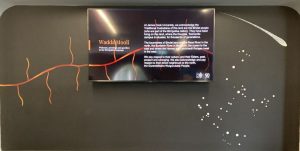Acknowledgement of Country
As part of the Mabo Interperative Wall project, a special Acknowledgement of Country was devised with the advice of the Traditional Owners of the Bindal Country, on whose land the Eddie Koiki Mabo is situated. This acknowledgement of country is specific to the location of the Wall, which formed the starting point of this book.

Wadda Mooli
Wadda Mooli means welcome, greetings and goodbye in the Birri-Gubba language.
At James Cook University, we acknowledge the Traditional Custodians of this land are the Bindal people (who are part of the Birrigubba nation). They have been living on this land, where the Douglas, Townsville campus is situated, for thousands of generations.
The boundaries of Bindal land are the Ross River in the north, the Burdekin River in the south, the ocean to the east and where the Hervey and Leichhardt Ranges meet in the west.
We pay respect to their culture, and their Elders, past and present. We also acknowledge and pay respect to their direct neighbours to the north, the Gurambilbarra Wulgurukaba People.
The First Peoples of Australia settled this country at least 65 000 years ago. Their unique cultural and spiritual relationships to land and sea have remained to this day, despite many fracturing events.
As the last Ice Age ended, sea levels rose to cover the continental shelf and create the modern-day coastline. Australia’s First Peoples continued to live on and use the coast in the changing landscape, crossing the water to islands that had been part of the mainland. Throughout this time, hundreds of nations had emerged across Australia, and at the time of colonisation around 250 distinct languages were spoken.
James Cook University acknowledges that the impact of colonisation, government policies, racial discrimination and prejudice, have had a major effect on the lives of Australia’s First Peoples. We are committed to working together to achieve genuine and sustainable reconciliation with Aboriginal and Torres Strait Islander peoples and the wider community.
